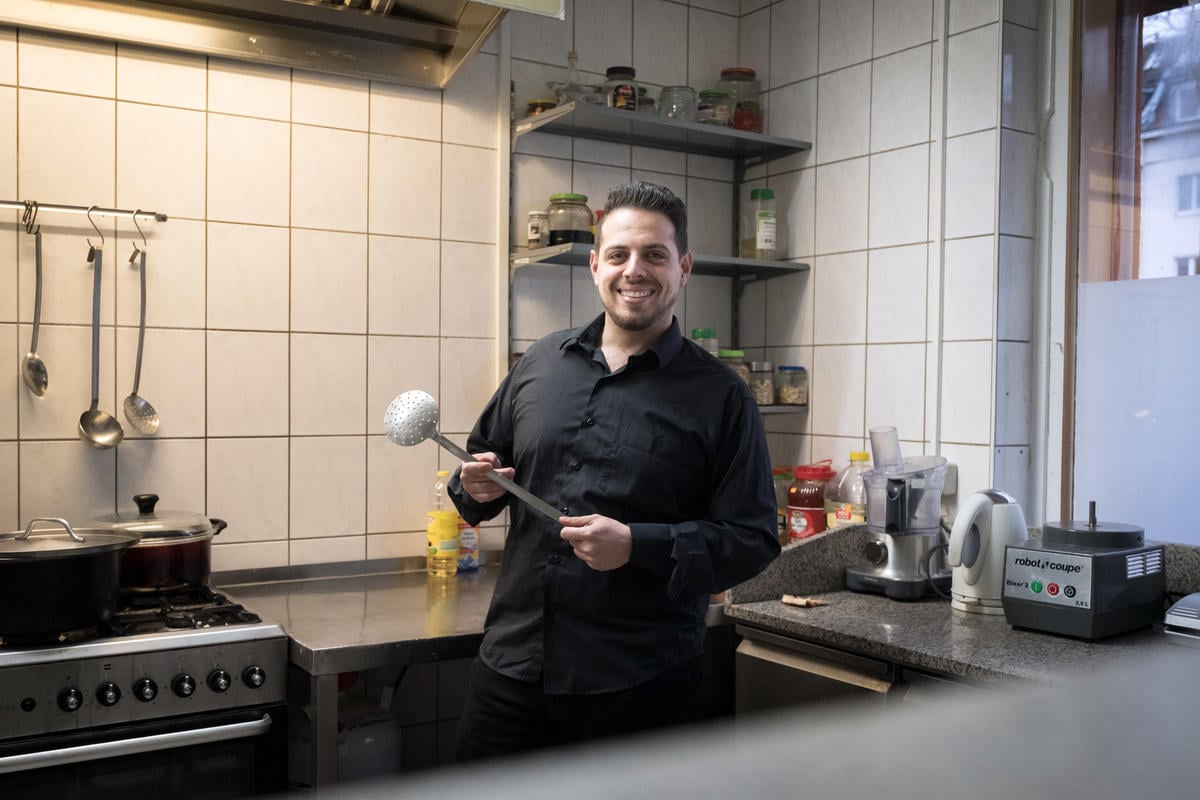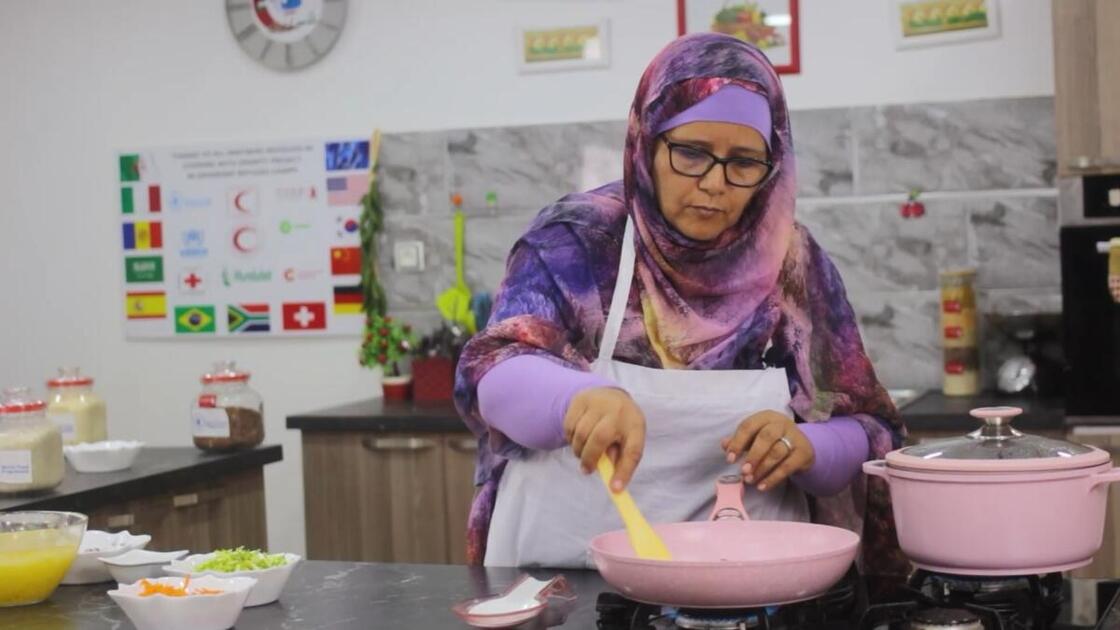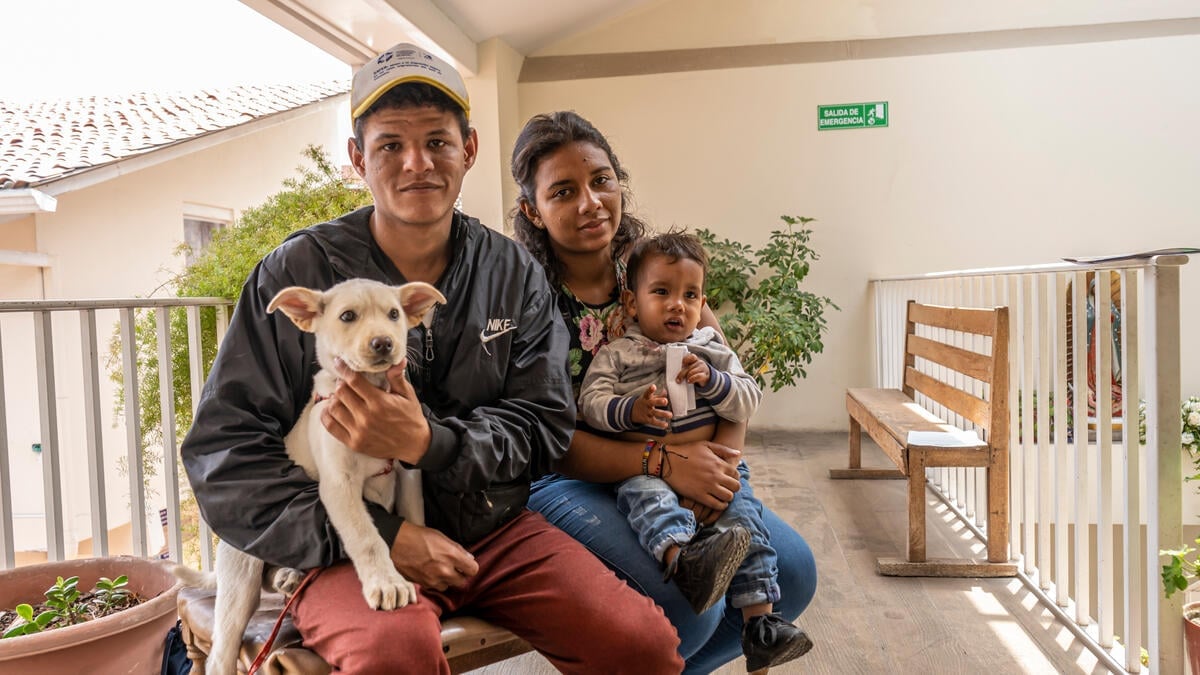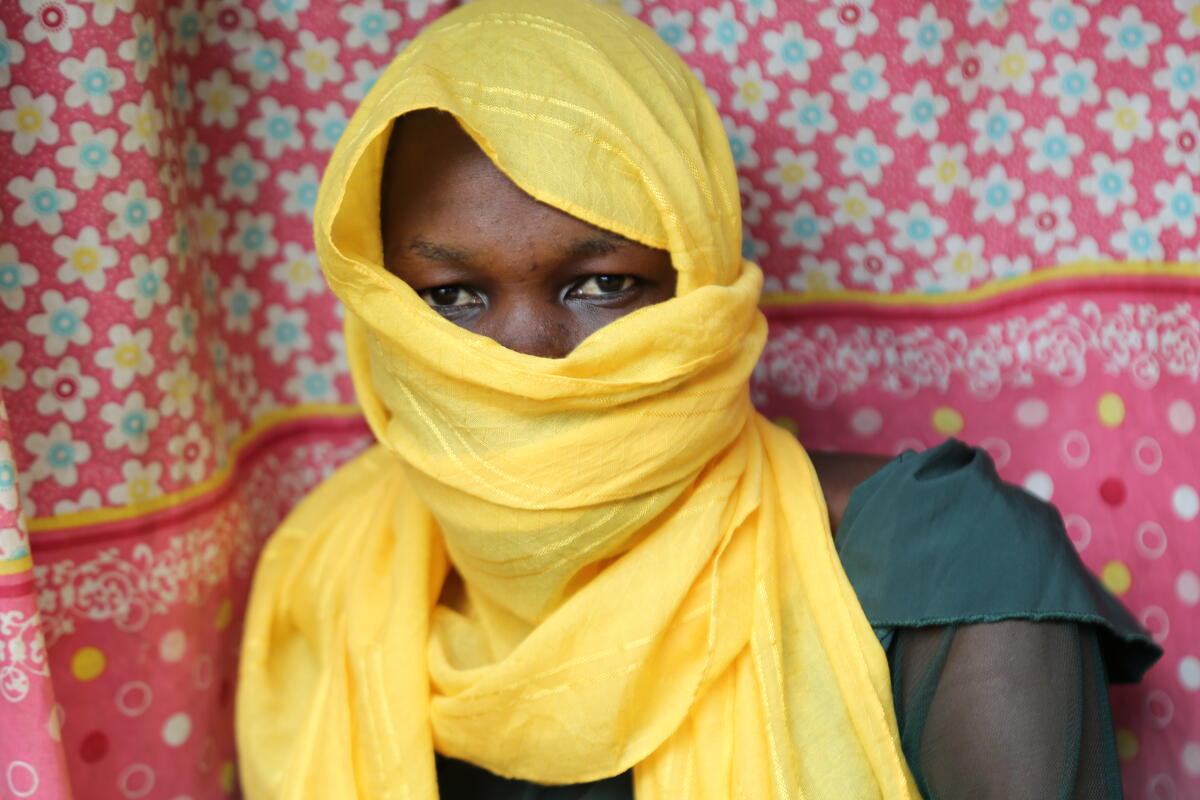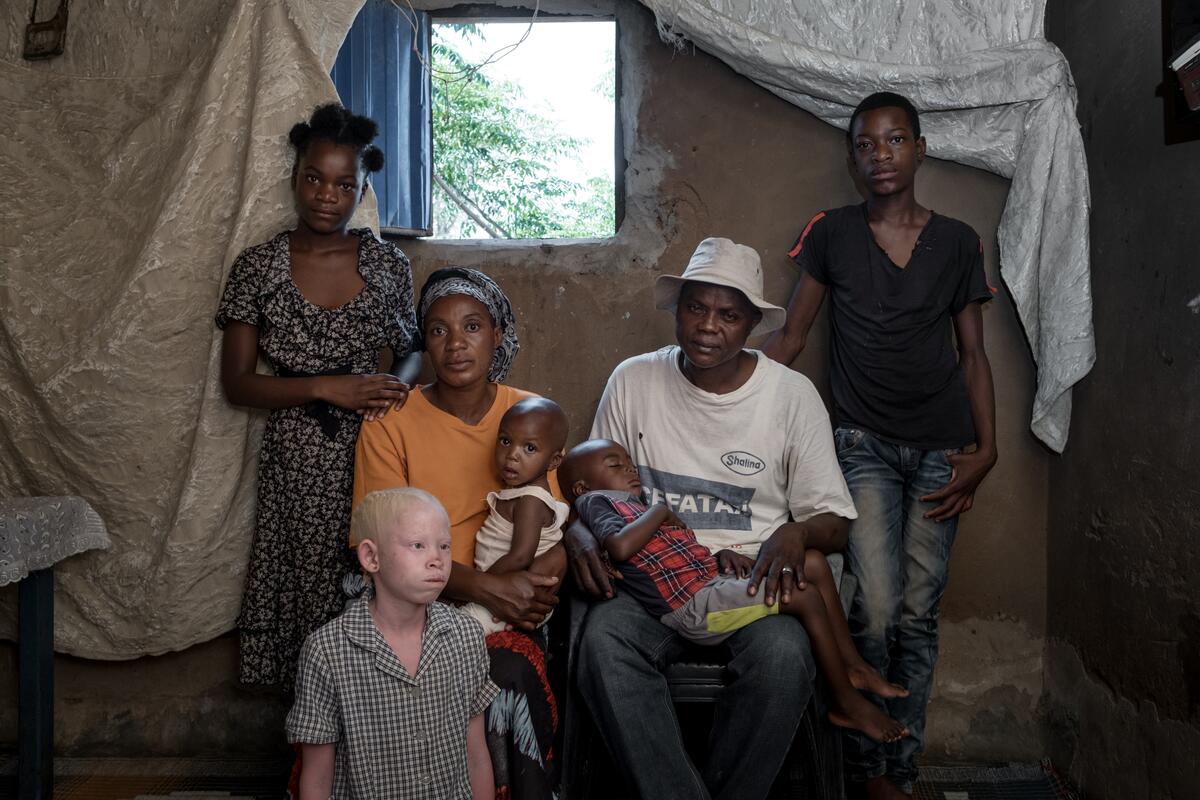Syrian entrepreneur finds her niche in Berlin, catering to a hungry city
Syrian entrepreneur finds her niche in Berlin, catering to a hungry city
Berlin’s businesses can’t get enough of Salma Al Armarchi’s home-cooked Syrian food.
Food was always a hobby for Salma, 53. Now a refugee in Berlin, the Syrian cook found her culinary skills in such demand she was able to make a living. Her secret ingredient? Passion.
“Every time I cook I do it with love,” laughs Salma, during a break in her kitchen. “When you cook with love, people love the food.”
Salma’s break came in 2016 when she was asked to feed volunteers at Berlin’s non-profit ReDI school, where her eldest son, Fadi, was taking a free coding course for newcomers.
“It was a big responsibility as it was the first time a lot of the teachers had tried Syrian food,” said Fadi, 32. “They loved it. They all thought we already had a catering business.”
"Every time I cook I do it with love."
Salma never set out to be a chef or an entrepreneur. Back home in Damascus, Syria, she cooked for fun, meeting regularly with friends to donate food to people struggling to make ends meet.
Then her country descended into war. In 2012, Salma, her youngest son and her daughter, fled to Germany on a tourist visa and applied for asylum.
Fadi followed in 2014 as part of a family reunification scheme.
Salma’s family was safe, but she was struggling. Learning German was difficult, and she was unable to find work in her previous profession.
Then, in 2015, tens of thousands of fellow Syrians arrived in Berlin. Salma and Fadi volunteered to help, translating, donating clothes, and even helping others with basic survival German.
Salma met many people who, like her, were finding it tough to adapt.
“It’s very hard to find a job at my age,” she said. “It’s my goal to hire other middle-aged people in my kitchen,”
Then, a chance encounter inspired her to put her cooking skills to good use. When Fadi asked Salma to cater for ReDI’s picnic, she decided to pull out all the stops.
Borrowing equipment from friends, Salma recruited her other two adult children and a nephew to help make mounds of appetizers in their apartment.
The family worked three days straight to get the food ready.
"The most difficult step is the first."
The picnic was a great success. Salma’s food was presented so professionally that the teachers – all employed in Berlin’s booming tech start-up scene – began making enquiries.
Before long, Fadi was approached by a manager at Cisco wanting catering for a conference. Hiding his surprise, he ducked into the bathroom to call Salma. She agreed, and the business was born.
Within two days, mother and son had a menu, a website and space in a temporary kitchen. And they had a name; Jasmin Catering, after the white flowers that cover Damascus in spring.
“The most difficult step is the first,” said Salma. “If somebody has an idea, they should just do it. Start with what you have. Just improvise.”
As the orders started flooding in, Fadi and Salma found a permanent kitchen near the apartment they share in the south of the city.
The next few years were a blur of office lunches, away days and conferences. They cooked for Facebook, McKinsey, Germany's Green Party, embassies and even German Chancellor Angela Merkel’s office.
But for Fadi, the biggest honour was the weddings. There have been four in the past year, all of them for German clients.
He puts their success down to adapting oriental dishes to fit local ingredients and always being sure to cater for Berlin’s large vegan population.
"We are happy to be bringing people new tastes."
Alongside traditional dishes like Heraa Esbaoo, a pasta stew with bread, lentils and herbs, Jasmin offers alternative versions of Syrian staples, using vegan dumplings in place of minced meat.
“We offer something different,” said Fadi. “We find ways of making traditional dishes vegan or vegetarian, which is very popular and healthy.”
Salma and Fadi now hope to build on their success to secure more regular clients.
“There is a lot of focus on cuisine here in Europe,” said Fadi. “And we are happy to be bringing people new tastes. Now more people are breaking down the barrier, trying our food, and liking it.”



